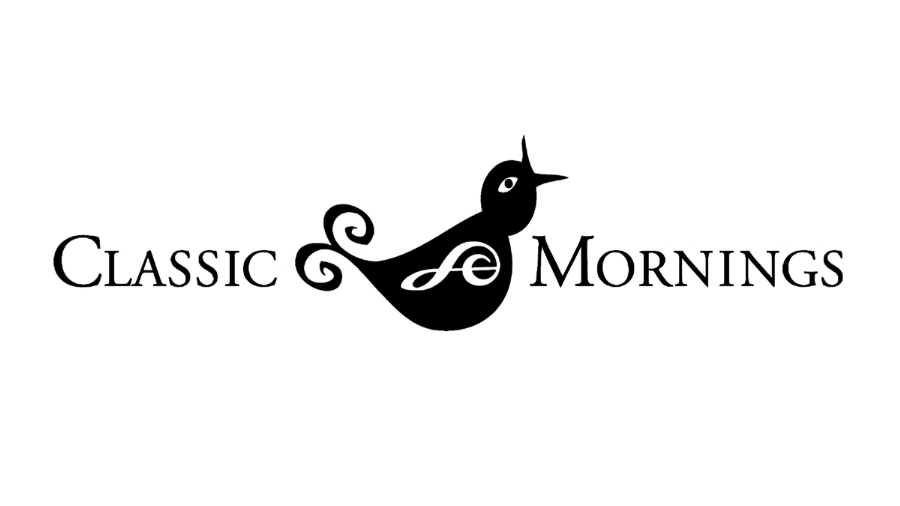A Tasty Flute Salad

I was suspicious, but curious. I usually ignore topics that are suggested by search engines when I’m hunting for information. This time, I gave in. The pairing of a music ensemble and sour cream seemed to promise at least some amusement.
The Amsterdam Loeki Stardust Quartet is a recorder quartet, which was formed in 1978. Its name comes from an animated character known as “Loeki de Leeuw” (Loeki the Lion). Loeki (pronounced LOO key) was named for a famous soccer player. According to a Holland Times article by Maria Thomson in October, 2021, the lion was featured in short sketches in-between blocks of commercials on Dutch TV in the 1970s and 1980s. He appeared on television in other countries as well, and in a full-length animated film last year. Loeki’s theme tune became a part of the quartet’s repertoire.
We’ve been enjoying recordings by the ensemble for decades. I wasn’t aware that Frans Brüggen, the Dutch recorder player and conductor, had formed a recorder trio in 1972. That group, which specialized in avant-garde music, was called “Sour Cream.”
Online there are highlights from a concert which featured the Amsterdam Loeki Stardust Quartet with and without “Sour Cream.” It appears to have taken place soon after the quartet’s first recordings. I was able to recognize the players from their photos on the covers of those recordings. And Brüggen, who died in 2014, still had much of the youthful appearance I remembered from the pictures on his earlier albums. He was the uncle of Daniel Brüggen, one of the quartet’s original members.
It wasn’t a battle of recorder ensembles. The program included performances mostly by the quartet, so it’s no surprise that they stole the show.
I never imagined Mozart being upstaged. He’s always the headliner on January 27, which is his birthday. We listened to Mozart’s Symphony No. 40 with Neville Marriner conducting the Academy of St. Martin in the Fields on Classic Mornings. That’s a real crowd pleaser.
It’s not a milestone year for Mozart (1756-1791). And there are many composers and performers who were born on January 27. So, there’s always a chance that we’ll have a milestone celebration for someone other than Mozart on that day. This year, it was the bicentennial of the birth of French composer Édouard Lalo (1823-1892).
In 1873, 150 years ago, Lalo met the Spanish violin virtuoso Pablo de Sarasate. That prompted him to write a violin concerto, which was well-received by audiences. So, Lalo wrote another work for Sarastate: the Symphonie Expagnole for violin and orchestra. It became his most popular composition.
The title has caused a bit of confusion. In general, symphonies are performed by an entire orchestra. Concertos feature a solo instrumentalist in dialogue with an orchestra. Lalo said that he kept the title Symphonie Espagnole because it conveyed a violin solo soaring above a symphony.
Most listeners know Lalo only from that work, which has been recorded by countless violinists. But he also wrote operas, a ballet, and a variety of vocal, chamber, and orchestral compositions.
Lalo wasn’t the only one to steal a bit of attention away from Mozart on January 27. It was the 75th birthday of French pianist Jean-Philippe Collard. And within a week of Mozart’s birthday, there were 70th birthday celebrations for pianist/conductor Myung-Whun Chung (January 20) and violinist/violist/conductor Yuri Bashmet (January 24).
Three famous musical works were performed for the first time on January 19, though years apart: Giuseppe Verdi’s opera Il Trovatore, 170 years ago (1853) in Rome; Camille Saint-Saens’ Cello Concerto No. 1, 150 years ago (1873) in Paris; and the ballet Raymonda by Alexander Glazunov, 125 years ago (1898) in St. Petersburg. Are you familiar with any of them?
We celebrated a tricentennial on January 12 for a famous work by George Frideric Handel. I’ll bet you know some of his greatest hits: Water Music, the keyboard piece known as the “Harmonious Blacksmith,” the oratorio Messiah and the opera Rinaldo. OK, some of you never heard of Rinaldo. Audiences in Handel’s time certainly knew it. They also knew the opera Ottone, which had its premiere 300 years ago.
The website “Handel and Hendrix in London,” noted that those two operas helped Handel “pay the bill.” Londoners were so obsessed by Italian-language operas that the performances sold out, the tickets changed hands repeatedly for much more than their original price, and the Royal Academy was able to pay investors a 7% dividend. Rinaldo had 53 performances during Handel’s lifetime and Ottone, the runner-up, had 34.
If you tune in to Classic Mornings just a few times each week, you’d hear the program close to 150 times in a year. And you’d hear a few thousand selections of music! Join us, Monday through Friday from 9-noon on FM 90.9 or online at will.illinois.edu.

